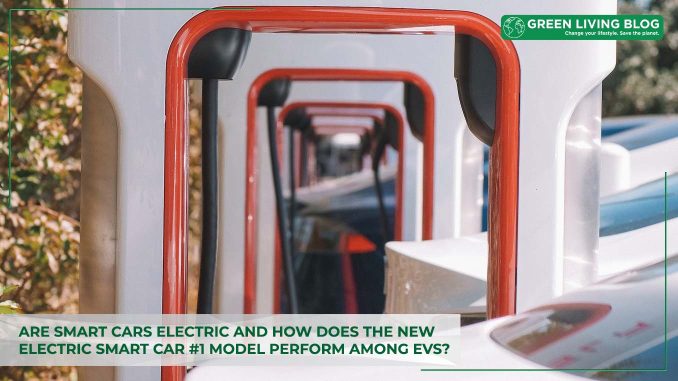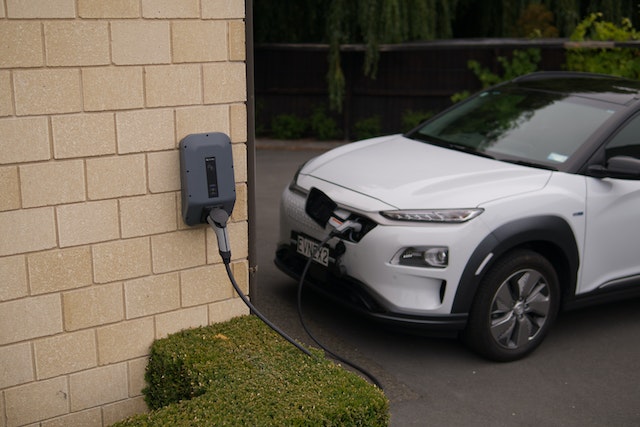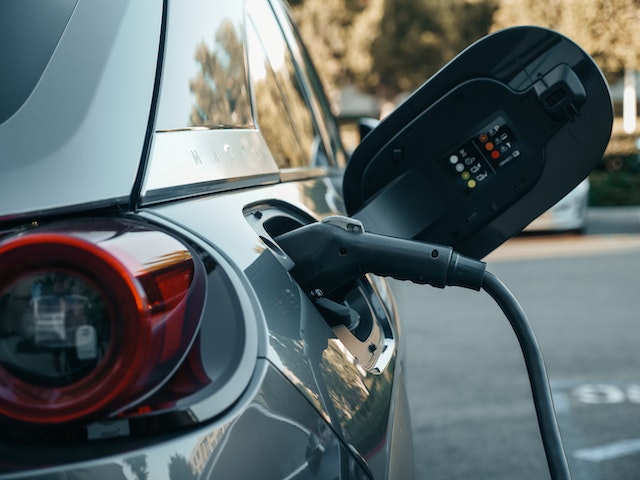
Many looking for a compact, stylish, and eco-friendly car, are wondering: is the smart car electric?
The answer is yes!
Since 2020, smart has been offering only electric cars in its range, including the smart EQ fortwo and the smart EQ forfour.
These models have been replaced by the new smart #1, which is a fully electric crossover that combines futuristic design, seamless connectivity, and high safety standards according to smart and independent reviews.
What you need to know about the electric smart #1

The smart #1 is the first model from smart since it became a joint venture between Mercedes-Benz and Geely, a Chinese automotive company.
It is also the first smart car to be built on a dedicated electric platform, which means it has more space, more power, and more range than its predecessors.
The smart #1 comes in four lines: BRABUS, Pro+, Premium and Launch Edition. Each line has its own distinctive features and colours, but they all share some common elements, such as:
- CyberSparksLED+ headlights that light the way with style and intelligence.
- Endless ambient lighting options with 64 colours and 20 illumination levels.
- Halo Roof lets you enjoy the sky view from inside the car.
- Screens wherever you look, including a 12.8″ touch-screen central display and a 9.2″ full LCD HD digital instrument cluster.
- A software-defined car that is supported by a seamless digital ecosystem that keeps you comfortable, safe, and entertained.
- The smart #1 can deliver up to 268 horsepower and 360 Nm of torque, which means it can accelerate from 0 to 62 mph in as little as 6.9 seconds.
- It also has a range of up to 273 miles (WLTP), which is more than enough for most urban journeys.
- And when you need to recharge, you can use a fast charger that can replenish up to 80% of the battery in just 30 minutes.
How does the smart #1 stand out among EVs?

The smart #1 is not only a smart car, but also a smart choice for the environment.
- It has zero tailpipe emissions, which means it does not contribute to air pollution or climate change.
- It also uses recycled materials in its interior, such as PET bottles and ocean waste plastic.
- It comes with a green energy package that allows you to charge your car with renewable energy sources.
- The smart #1 is a compact electric vehicle that offers a range of 160 km on a single charge.
- It has a top speed of 130 km/h and can accelerate from 0 to 100 km/h in 11.6 seconds.
- It features a 6 kWh lithium-ion battery that can be fully charged in six hours using a standard outlet or in 40 minutes using a fast charger.
- It also has a smart app that allows the driver to monitor the battery status, locate charging stations, and control some functions remotely.
- Compared to other EVs, the smart #1 is more affordable, more efficient, and more suitable for urban driving starting at £36,000.
What to consider before purchasing an electric car like the smart #1?

- It is highly recommended to conduct a test drive or explore the latest offers on the official website of smart UK. Every driver has different preferences and it’s important to get a feel for the car to understand if it’s what one is looking for.
- Speak to the car dealer about your environmental concerns regarding the car to make sure that the electric vehicle you invest in, ticks all your sustainability boxes.
- Check that the type of electric vehicle (EV) suits your needs and budget. There are different types of EVs, such as battery electric vehicles (BEVs), plug-in hybrids (PHEVs), hybrids (HEVs), mild hybrids (MHEVs), range-extended electric vehicles (RE-EVs) and hydrogen fuel cell vehicles (FCEVs). Each type has its own advantages and disadvantages, such as cost, range, charging options and environmental impact.
- Match the range of the EV with your driving habits. The range is the distance an EV can travel on a single charge or fill-up. The range can vary depending on factors such as battery size, driving style, weather conditions and terrain. Generally, BEVs have longer ranges than PHEVs, but they also require more frequent charging. PHEVs can switch to gasoline when the battery runs low, but they also emit more emissions than BEVs.
- Check the availability and cost of charging stations or fuelling stations for your EV. Depending on the type of EV you choose, you may need to charge it at home, at public charging stations or at special fuelling stations. You should consider the location, accessibility, and price of these options before buying an EV. Some EVs may qualify for incentives or discounts on charging or fuelling costs.
- The depreciation and resale value of the EV. EVs tend to depreciate faster than conventional cars, especially if they have older or smaller batteries. This means that they may lose more value over time and sell for less when you want to trade them in or sell them. However, some EVs may retain their value better than others, depending on factors such as brand, model, condition, and demand.
- The software features and updates of the EV. EVs are often equipped with advanced software that controls various aspects of the vehicle, such as performance, safety, entertainment, and navigation. Some EVs may offer over-the-air updates that can improve or add new features to the vehicle without requiring a visit to a service centre. However, some updates may also introduce bugs or glitches that can affect the functionality or reliability of the vehicle.
Find out more about electric cars and sustainable technology by visiting greenlivingblog.org.uk, where we share tips and insights on how to live a more sustainable lifestyle with the best eco-solutions.
![]()
Author Profile
- Online Media & PR Strategist
- Blogger and Educator by Passion | Senior Online Media & PR Strategist at ClickDo Ltd. | Fascinated to Write Lifestyle Blogs in News & Education I have completed a journalism summer course at the London School of Journalism and manage various blogs.
Latest entries
 Best practicesApril 14, 20258 Best Ways to Reduce Your Carbon Footprint
Best practicesApril 14, 20258 Best Ways to Reduce Your Carbon Footprint Green Expert GuidesMarch 28, 2025Lisbon Living: Where Sustainable Charm Meets Urban Energy
Green Expert GuidesMarch 28, 2025Lisbon Living: Where Sustainable Charm Meets Urban Energy EnvironmentJanuary 21, 2025Buying Eco-Friendly Homes: 6 Eco Questions to Ask Your Real Estate Agent
EnvironmentJanuary 21, 2025Buying Eco-Friendly Homes: 6 Eco Questions to Ask Your Real Estate Agent BusinessJanuary 16, 202510 Benefits of used Office Furniture when Refurbishing an Office
BusinessJanuary 16, 202510 Benefits of used Office Furniture when Refurbishing an Office






Leave a Reply
You must be logged in to post a comment.